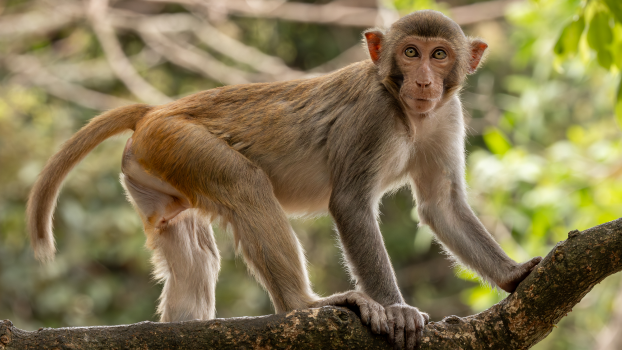Fighting Monkey Malaria in Malaysia
Using K-Othrine® PolyZone® insecticide to protect communities and advance mosquito control innovation
The Challenge

In Malaysia’s tropical forests, where people, mosquitoes and monkeys increasingly share the same spaces, a new kind of malaria is emerging. It’s a zoonotic form of the disease — meaning it can be transmitted from animals to humans. In this case, the infection has become widely known as “monkey malaria,” and it is prompting new approaches to mosquito control. Unlike traditional malaria, which spreads between humans through indoor-biting mosquitoes, monkey malaria is transmitted by outdoor-biting mosquitoes that live and feed in forested areas (specifically, the Anopheles leucosphyrus group). The parasite responsible — Plasmodium knowlesi — circulates naturally among macaques, forest-dwelling monkeys often found near human settlements in Southeast Asia. But unlike parasites that infect only animals, P. knowlesi can also cause severe illness in humans.
In 2023, Malaysia experienced a sudden surge in zoonotic malaria cases, with 2,879 infections and 14 deaths reported nationwide — the majority in the forested regions of Sabah and Sarawak. That same year marked Malaysia’s sixth consecutive year without any locally transmitted human malaria, as reported by the World Health Organization. Yet the emergence of monkey malaria has shown that success against one form of the disease does not mean the battle is over — it has simply shifted to a new front.
Zoonotic malaria presents a whole new set of challenges for health experts. Because it originates in monkeys and is spread by outdoor-biting mosquitoes, it cannot be controlled by the same methods that worked for human malaria. Traditional indoor residual spraying is far less effective when mosquitoes feed and rest outside, prompting researchers and public health authorities to explore innovative outdoor control strategies.
The Insight
To address this growing challenge, Malaysia’s Institute for Medical Research (IMR) partnered with Envu to explore outdoor residual spraying (ORS) — an innovative adaptation of existing mosquito-control methods. Envu scientists identified K-Othrine® PolyZone®, a polymer-enhanced, weather-resistant insecticide formulation co-developed with the Innovative Vector Control Consortium (IVCC), as a promising candidate for outdoor use in Malaysia’s tropical climate. Its polymer technology allows the active ingredient to remain effective even after heavy rainfall, providing longer-lasting control with reduced environmental impact. Field trials led by IMR and Envu in selected villages across Sabah and Sarawak tested the formulation’s performance and safety. Results confirmed that K-Othrine PolyZone maintained high efficacy over extended periods, significantly reducing outdoor mosquito populations while supporting Malaysia’s broader vector-control objectives.
These findings, published in PLOS One, offered critical data to the WHO Vector Control Working Group and helped inform best practices for managing zoonotic malaria vectors in Southeast Asia.
Impact
Building on the success of the field trials, Malaysia’s Ministry of Health adopted K-Othrine PolyZone for its national malaria-control tender in 2024, expanding the use of outdoor residual spraying nationwide. Under the leadership of Teck Peng Lee, Head of Malaysia and Export Countries, Envu coordinated the timely delivery of 80,000 bottles to public-health teams across the country. To ensure safe and effective application, Envu and IMR collaborated on a series of training sessions across all 14 states, equipping operators with the technical knowledge and stewardship practices required for sustained vector management. This initiative strengthened Malaysia’s capacity to respond to new malaria threats and positioned the country as a regional leader in outdoor vector control innovation. It also demonstrated the value of multi-stakeholder collaboration—linking public institutions, researchers, and private partners in pursuit of shared public health goals.
The experience has underscored a vital truth: progress against disease is never static — new threats demand new thinking, new partnerships, and new tools.
Related Content
- The Burden of Malaria – Explore the global impact of malaria and see how vector-control innovation is helping reduce the burden worldwide.
- Learn more about K-Othrine® PolyZone® in Malaysia
- Explore how Envu is helping communities create healthier spaces and protect public health
.ashx)
Impact stories
-
Impact
Message from our executive team
We lead with purpose, integrating sustainability at every level.
Read more
-
Impact
Our Sustainability Focus
We recognize that society and nature are deeply connected, which is why we focus on the future well-being of the environments where people live, work, and play.
Read more
-
Impact
Business ethics and governance
Envu upholds strong business ethics and best-in-class standards by reinforcing accountability, transparency, and integrity through systematic measurements and introducing internal controls when needed.
Read more
-
Impact
Decarbonizing the value chain
Envu considers reducing carbon emissions as both a critical responsibility and a strategic priority. Through close collaboration with stakeholders, we embed carbon reduction efforts into our operations to mitigate risks, build resilience, and create long-term value for customers and investors.
Read more
-
Impact
Healthier spaces and people
Envu continues to invest in innovative solutions and ongoing research to fostering a healthier, safer environment. We strive to contribute to the betterment of the society by preventing the spread of vector-borne diseases, protecting infrastructures and safeguarding our food supplies.
Read more
-
Impact
Nature-positive innovation
We contribute to enhancing biodiversity and helping our ecosystem by controlling invasive species and pests, restoring native forests and rangelands, and using advanced solutions and digital technologies to optimize product usage.
Read more
-
impact
Safe and inclusive workspace
At Envu, creating a safe and inclusive workplace is central to how we develop talent, promote well-being, and foster a culture of belonging. We prioritize equal opportunities for growth, support fair and safe labor practices, and uphold human and labor rights across our operations and value chain.
Read more
-
Impact
Focus on land restoration
The tropical Atlantic Forest once blanketed the eastern coast of Brazil, but only 12% of the original forest remains. In 2009, the Atlantic Forest Restoration Pact was formed with the goal of restoring more than 15 million hectares of Atlantic Forest by 2050.
Read more
